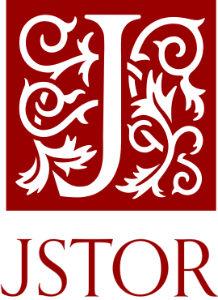Korean Studies
Individual Subscriptions
Institutional Subscriptions
Additional Information
A leading academic journal in the field, Korean Studies publishes—generally in the spirit of the humanities and social sciences—research articles, review articles, commentaries, and book reviews on Korea-related topics, to better question and understand our world. Founded at the University of Hawai‘i at Mānoa’s Center for Korean Studies in 1977, the journal is published by the University of Hawai‘i Press in two forms, as annual volumes and as continuously released online articles with DOIs.
Submit your manuscript online.
Sponsor: Center for Korean Studies at the University of Hawai‘i at Mānoa
Book Series: Hawai‘i Studies on Korea
- Recent Articles
-
Editor's Note
Posted on Tuesday July 02, 2024Introduction to Special Section: A Translational Reading of the Invention of Korea's Confucian Traditions
Posted on Tuesday July 02, 2024South Korean Historiography on Civil Service Examination, Max Weber, and the Cold War Transpacific Invention of Confucian Modernity
Posted on Tuesday July 02, 2024The Rescue Mission: From Confucian Corruption to Protestant Conscience at the Turn of Nineteenth Century Korea
Posted on Tuesday July 02, 2024The Genealogy of Confucian Modernity and the Reconstruction of Confucian Traditions in Post-Liberation Korea
Posted on Tuesday July 02, 2024Staging "Civilization and Enlightenment"—Yi Kwang-su's Kyuhan and the Communicability of Modern Theater Space
Posted on Tuesday July 02, 2024Introduction to Special Section: Portrayals of Motherhood in South Korean Popular and Practiced Culture
Posted on Tuesday July 02, 2024The Mother in Kore-eda's Broker: Striking New Reverberations in the Korean Context
Posted on Tuesday July 02, 2024A Total Management System, Mothering
Posted on Tuesday July 02, 2024From Patriarchal Motherhood to Feminist Mothering? The Depiction of the Single Mother Tongbaek in the K-drama When the Camellia Blooms (2019)
Posted on Tuesday July 02, 2024Salvation Through Womanhood: The Doctrine of Woman Leadership and Portrayal of Ko P'allye as the Great Mother in Chŭngsando
Posted on Tuesday July 02, 2024"Wise Mothers," "Mom Bugs," and Pyŏngmat (Twisted Tastes): The Limits of Maternal Emotional Expression in South Korean Webtoons
Posted on Tuesday July 02, 2024Ungrateful Refugees: North Korean Refugees in South Korea
Posted on Tuesday July 02, 2024Migration Trajectories of Indonesian Expatriates in South Korea
Posted on Tuesday July 02, 2024Founding Father or National Traitor? Contested Memories of Syngman Rhee in Mid-1990s South Korea
Posted on Tuesday July 02, 2024Views at Variance: Korean Women Disrupting and Subverting the Narrative of Protestant Missionary Women Through Moments of Difference, 1884–1910
Posted on Tuesday July 02, 2024The Discourse of Korean Han: Background and Historical Landscape
Posted on Tuesday July 02, 2024Women in the Sky: Gender and Labor in the Making of Modern Korea by Hwasook Nam (review)
Posted on Tuesday July 02, 2024Narratives of Civic Duty: How National Stories Shape Democracy in Asia by Aram Hur (review)
Posted on Tuesday July 02, 2024Cine-Mobility: Twentieth-Century Transformations in Korea's Film and Transportation by Han Sang Kim (review)
Posted on Tuesday July 02, 2024Making Peace with Nature: Ecological Encounters along the Korean DMZ by Eleana Kim (review)
Posted on Tuesday July 02, 2024 - Single Issues
- Volume 43, Number , 2019
- Social Changes and Visual Culture in Contemporary Korea
- Volume 43, Number , 2019
- Volume 42, Number , 2018
- General Issue
- Volume 41, Number , 2017
- General Issue
- Volume 40, Number , 2016
- General Issue
PAYMENT
All prices are indicated in U.S. dollars. Canadian customers must include 5% GST (automatically included at checkout). All prices shown are exclusive of any taxes.
Payment must be included with all orders. We accept payment by U.S. dollar checks drawn on a U.S. bank and made payable to the University of Hawaii Press. We also accept payment by Visa or MasterCard. If paying by credit card please include the card number, expiration date, cardholder name and billing address. If you wish to pay by bank transfer, please contact us for bank details. No refunds will be made except for erroneous duplicate orders.
PRINT SUBSCRIPTIONS – GENERAL INFORMATION
Subscription Start
Unless otherwise requested, subscriptions will start with the current year’s issue.
Shipping / Postage
All prices shown include standard delivery in the U.S.A. Additional postage will be charged at checkout for print orders mailed outside the U.S.A. Priority Mail option at additional cost is available at checkout. Please contact customer service for other shipping options.
Back Issues
Print issues older than two years are available in limited supply and may be purchased at a discounted rate. Please fill out a back-issue order form.
Bookstores/Classroom Use
Bulk-rate discounts for one-time print orders are 20% on 10-19 copies and 30% on 20 or more copies. Postage charges are NOT discountable. All sales are final, we do not accept return of journal issues. Please contact customer service to order bulk copies.
INDIVIDUAL ORDER INFORMATION
Individual rates apply to subscriptions and single issue orders for individual (personal) use. You must provide a first name, last name, and telephone number.
Online access
When you place your order for online access (electronic subscription), you will receive an emailed receipt that includes an activation code and a link to this page: https://associations.press.jhu.edu/uhp/
Please enter your activation code and register on the site to gain access to the journal content.
A FAQ is available here: https://faq.press.jhu.edu/uhp
We are pleased to partner with the Johns Hopkins University Press and Project MUSE to provide online access to subscribers.
INSTITUTIONAL ORDER INFORMATION
Institutional rates apply to subscriptions and single issue orders for Institutional / Organizational use and paid for by libraries, universities, schools, societies, government offices, departments, businesses and the like. If you are ordering on behalf of your institution, please include the institution name.
Online access and Print + Online orders
Institutions may order electronic subscriptions or print + electronic through our hosting partner Project MUSE: https://muse.jhu.edu/cgi-bin/single_title_subscription.cgi?year=2018
You may contact Project MUSE at [email protected].
SUBSCRIPTION CLAIMS
Claims for non-receipt of issues will be honored at no charge within 180 days of the original ship date. Thereafter, the single copy rate will be charged for replacement. No more than one free replacement per issue will be allowed. Credits for non-receipt are not offered.
Please contact customer service at:
Journals Department, University of Hawai‘i Press, 2840 Kolowalu Street, Honolulu, HI 96822
Tel. 1-808-956-8833; Fax 1-808-988-6052
Toll-free (U.S. & Canada) Tel. 1-888-UHPRESS; Fax 1-800-650-7811
e-mail: [email protected]
SUBSCRIPTION AGENTS
Please see our current title listing and rate sheet. We offer an agency discount of 5% off the institutional subscription rate. We do not offer discounts on single issue orders or postage. New agents must provide the URL of their business website or submit their initial correspondence on official company letterhead.
Complete author guidelines are available here.
Submission Details
Research articles present new research findings, while review articles engage with important current debates surrounding a topic. Commentaries may take the form of addressing current events or responding to previously published works, either in Korean Studies or another venue.
The manuscript is to be written in the English language, with the text formatted as following:
- Maximum lengths: research articles 10,000 words; review articles 10,000 words; commentaries 2,000 words; and book reviews 1,000 words
- Manuscript is accepted in Microsoft Word (.docx), OpenDocument Format (.odt), or Rich Text Format (.rtf)
- Paper size US letter; margins 1-inch all around
- Text line spacing 1.5; no spaces between paragraphs
- Font type Times New Roman; font size 12-point; pages numbered on lower right
- Citation is to follow the Chicago Manual of Style’s endnotes and bibliography method; endnotes are automatically numbered in the section Notes, and all cited sources are to be listed by the author in the section References
- Korean language romanization is based on the McCune-Reischauer system, with the exception of linguistics-related manuscripts, which can use the Yale system; original Asian characters may be included in parentheses
- Research and review article manuscripts should not have the author’s name appearing anywhere; the first page is to include the title and an abstract of 250 words
Submission is processed through the journal’s online system, eJournal Press. Click here to go to the online submission site. New users will need to create an online profile. When submitting a manuscript, the author will be prompted to choose among the categories of “research article,” “comment,” and “book review.” Authors who are submitting a review article should choose the “research article” category. The online system will require the following items: manuscript information; author information; keywords of 5 to 7 terms; and—for research articles, review articles, and commentaries—an abstract of 250 words.
The double-blind peer review process entails the following steps:
Editor
Cheehyung Harrison Kim, History, University of Hawai‘i at Mānoa
Book Review Editor
Myungji Yang, Political Science, University of Hawai‘i at Mānoa
Editorial Board
Christopher J. Bae, University of Hawai‘i at Mānoa
Donald Baker, University of British Columbia
Victor Cha, Georgetown University
Daham Chong, Sangmyung University
Charles R. Kim, University of Wisconsin-Madison
Eun-Shil Kim, Ewha Womans University
Hae-Young Kim, Duke University
Jangsuk Kim, Seoul National University
Keun Lee, Seoul National University
John Lie, University of California, Berkeley
Jiehyun Lim, Sogang University
Roald Maliangkaij, Australian National University
Owen Miller, SOAS University of London
Young-a Park, University of Hawai‘i at Mānoa
Michael Pettid, SUNY Binghamton
Janet Poole, University of Toronto
Vladimir Tikhonov, Oslo University
Dafna Zur, Stanford University
Advanced Placement Source
Art, Design & Architecture Collection
Arts & Humanities Database
OCLC ArticleFirst
Bibliography of Asian Studies
Book Review Index
Current Abstracts
Historical Abstracts
Humanities International Index
International Bibliography of the Social Sciences
International Bibliography of Book Reviews (IBR)
International Bibliography of Periodical Literature (IBZ)
Linguistics and Language Behavior Abstracts
MLA International Bibliography
Political Science Complete
Public Affairs Information Service
Scopus
SocINDEX
Sociological Abstracts
Web of Science: Emerging Sources Citation Index (ESCI)







